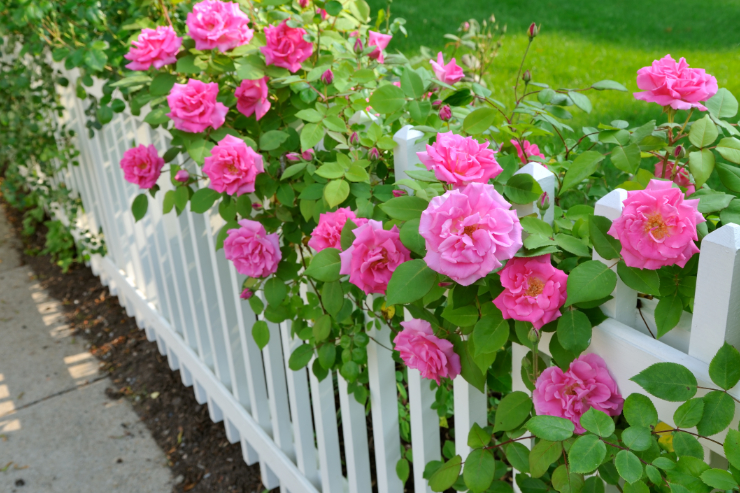
About two months ago, our family moved to a new city and home. Life was on the cusp of a spring breakthrough, though we couldn’t yet perceive all of its wonder and glory. Our new backyard was riddled with sticks and brown, parched grass. Heavily pruned and unidentifiable bushes adorned the brick pathway through the side yard. Life was dormant, yet awake somehow underneath all of the quiet and slow growth.
Days before our third daughter was born, I noticed one of those heavily pruned bushes, which turned out to be a vibrant red rose bush. Right outside our back door, I watched it daily as the buds appeared, one by one, then unfurled gracefully and purposefully. Shortly thereafter, the birds greeted me with their morning songs, even before dawn had burst anew. One of the lifeless trees in the backyard ended up a flourishing red bud that graced us with delicate pink blooms for a few weeks.
In the midst of such major life changes, our baby was born fairly uneventfully yet during a most fruitful time of year. Only days later, my paternal uncle passed away after a long struggle with death. And as I held our baby girl and gazed into her ocean blue eyes, I realized that life is always bittersweet—one life enters the world with such promise while another life exits after its passion is complete.
One of my closest friends said it best in a letter she recently sent me, “Life is about flourishing and dying.”
My life, and yours, cannot remain stagnant. It is either growing or receding, flourishing or dying. Sometimes we’d prefer that life was more about the flourishing—the beauty, the grandeur, the spectacular bursts of color and activity we hope our lives reflect. But, alas, the dying is a necessary, albeit arduous and painful, aspect of how well we flourish during those seasons of fruitfulness.
The dying is a necessary prerequisite for rising, for flourishing. Consider the rose bushes in our backyard. I wasn’t able to identify them as such when we first moved in our new house, because they were pruned to the trunk. I had no way of knowing or seeing what potential remained latent in that bush—not until the new growth began to appear, steadily each day. First I saw the branches, then the leaves, and shortly thereafter a bountiful bouquet of red buds.
As the roses bloomed, my two younger girls squealed every day with delight, eager to pick the blossoms and bring them inside. But I had to instruct them about the thorns surrounding those blooms. There are always thorns amidst the most beautiful things in life, aren’t there? The flourishing and the dying coexist.
Each day, we are called to die in some way. It’s our yes to God’s beckoning when Jesus said, “If you wish to save your life, then take up your cross daily and follow me.” We must die, friends—to ourselves, our whims, our senses, our comforts. Unfortunately or fortunately, we live in a society that thrives more on flourishing than dying, and as a result, we do not understand our potential for spiritual greatness.
We can only truly flourish when God prunes us, when we are somehow stripped of what is familiar and comfortable and left open and vulnerable. Will we allow God to pluck and prune us? Do we trust that, as painful as it is to be emptied in such a stark, humiliating way, God is faithful and will indeed allow us to bring about more good than if we remained as we were before—comfortable and content with the status quo?
Part of my dying each day is as a mother. With a newborn in the house, I don’t sleep much. I’m the last to eat at meals. I don’t really have any “me time.” But the moment my husband and I married, we promised to tether our lives to the Cross, and we knew that meant it was no longer about our single desires and wishes.
My uncle’s literal dying involved a slow and painful struggle to let go of this life. His cross was to suffer before death so that he could enjoy everlasting life in heaven one day.
And that’s the ultimate goal of flourishing and dying, isn’t it? That we all become treasures in God’s kingdom, that we strive for holiness through the ups and downs of daily living so that we can enter our eternal reward.
Text (c) Jeannie Ewing, all rights reserved.















